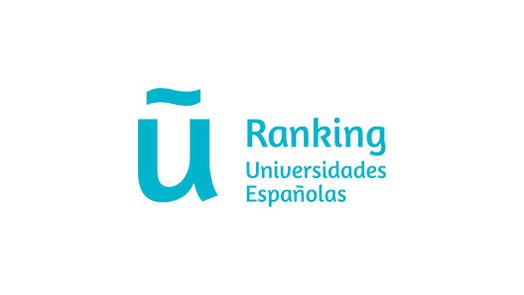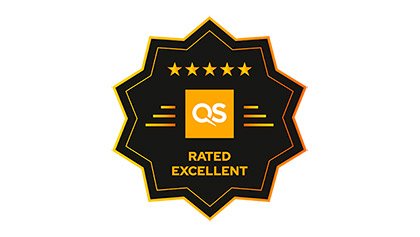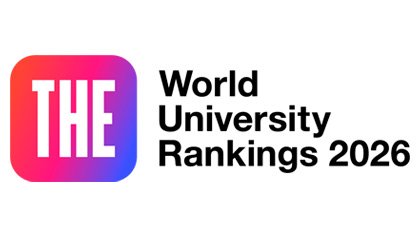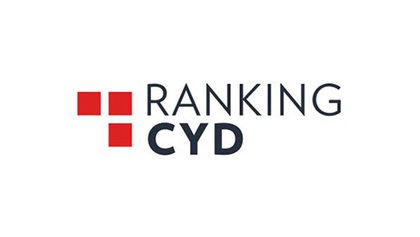-50% Discount on place reservation for 26/27 intake until February 28th!
-50% Discount on place reservation for 26/27 intake until February 28th!
Business Analytics Degree
The Degree in Business Analytics at Universidad Europea is aimed at students who want to become familiar with the various functional areas of a business organisation. Choose a Bachelor in Business Analytics to acquire the analytical and management skills you will need to succeed in the various divisions of a business.
The 4-year BA in Business Analytics is designed to provide essential training in mathematics, business intelligence, statistics, and programming so that students can develop a broad understanding of the sector and recognise the potential impact that Big Data can have on that market.
Our degree in Business Analytics in Madrid is taught entirely in English. You will learn from an experienced faculty and, thanks to our academic model based on experiential learning, complete internships and work placements at leading companies and organisations.
Official degree issued by Universidad Europea de Madrid
| Campus-based | Villaviciosa de Odón | 4 years, 240 ECTS | Start: 14 sep. 2026 | Faculty of Economics, Business and Communication Sciences |
What our students say about the Business Analytics Degree
Study plan
Plan designed by specialists to train a professional to handle with solvency the essential tools of management and business management and the basic tools of the creation and processing of data, applied to decision making and business management.
The curriculum is made up of:
- 58% of subjects of business administration and management (138 ECTS).
- 2% essential subjects to learn about business law (6 ECTS).
- 8% of cross-cutting subjects related to new forms of management (18 ECTS).
- 20% of basic subjects for technical knowledge of the creation and processing of data and basic data analysis tools (48 ECTS).
- 2% of modern language (6 ECTS).
- 10% of mathematical subjects of algebra, calculus, statistics and probability (24 ECTS).
Syllabus
Programa de estudios
PRIMER CURSO
| Materia | ECTS | Tipo | Idioma de impartición |
|---|---|---|---|
| Foundations of Business Management | 6 | CORE | English (en) |
| Statistics I | 6 | CORE | English (en) |
| Fundamentals of Programming I | 6 | CORE | English (en) |
| Marketing | 6 | CORE | English (en) |
| Mathematics: Algebra and Calculus | 6 | CORE | English (en) |
| Accounting I | 6 | CORE | English (en) |
| Finance I | 6 | CORE | English (en) |
| Macroeconomics | 6 | CORE | English (en) |
| Microeconomics | 6 | CORE | English (en) |
| Workshop in Decision-Making | 6 | COMPULSORY | English (en) |
SEGUNDO CURSO
| Materia | ECTS | Tipo | Idioma de impartición |
|---|---|---|---|
| Statistics II | 6 | COMPULSORY | English (en) |
| Fundamentals of Programming II | 6 | COMPULSORY | English (en) |
| Accounting II | 6 | COMPULSORY | English (en) |
| Finance II | 6 | COMPULSORY | English (en) |
| Databases | 6 | COMPULSORY | English (en) |
| Foreign Language I | 6 | CORE | English (en) |
| Econometrics | 3 | COMPULSORY | English (en) |
| Statistical Analysis Tools | 3 | COMPULSORY | English (en) |
| Ethics and Professional Efficiency | 6 | COMPULSORY | English (en) |
| Data Engineering I | 6 | COMPULSORY | English (en) |
| Workshop. Financial Decision-Making | 6 | COMPULSORY | English (en) |
TERCER CURSO
| Materia | ECTS | Tipo | Idioma de impartición |
|---|---|---|---|
| Data structure | 6 | COMPULSORY | English (en) |
| Data Engineering II | 6 | COMPULSORY | English (en) |
| Consumer Psychosociology | 6 | COMPULSORY | English (en) |
| Digital ecosystem | 3 | COMPULSORY | English (en) |
| Green management | 6 | COMPULSORY | English (en) |
| People management | 6 | COMPULSORY | English (en) |
| internet of things (IoT) | 3 | COMPULSORY | English (en) |
| Strategic direction | 6 | COMPULSORY | English (en) |
| New work and organization methodologies | 3 | COMPULSORY | English (en) |
| Workshop. HR decision making | 6 | COMPULSORY | English (en) |
| Relational impact and influence | 6 | COMPULSORY | English (en) |
| Solving complex problems | 3 | COMPULSORY | English (en) |
CUARTO CURSO
| Materia | ECTS | Tipo | Idioma de impartición |
|---|---|---|---|
| CRM Tools | 6 | COMPULSORY | English (en) |
| Internet data analysis | 3 | COMPULSORY | English (en) |
| Entrepreneurial leadership | 6 | COMPULSORY | English (en) |
| Law applied to data processing | 3 | COMPULSORY | English (en) |
| Company Law | 3 | COMPULSORY | English (en) |
| Data cycle | 3 | COMPULSORY | English (en) |
| Information sources | 3 | COMPULSORY | English (en) |
| Innovation and entrepreneurship | 6 | COMPULSORY | English (en) |
| Sector information | 3 | COMPULSORY | English (en) |
| Practicum II | 6 | PRACTICUM | English (en) |
| Bachelor's Final Project | 12 | BACHELOR'S FINAL PROJECT | English (en) |
| University Activities | 6 | OPTIONAL | English (en) |
| Practicum I | 6 | PRACTICUM | English (en) |
Programme implementation
2023-2024.
Number of places for incoming students
40.
Internships
Internships are a key part of your training. Gaining experience after what you learn in your degree is the best way to enter the job market. There are two types of internships, curricular (included in your syllabus) and extracurricular (which you can do on a voluntary basis).
To do a curricular internship in a company, you’ll need to have passed 50% of the credits and enrol on the course before you start work. These internships are monitored by the company and the internship professor, as well as interim and final reports for evaluation.
If you want to improve your work experience before completing your university studies, you can do an extracurricular internship. You can do them in any academic year, but remember that internships complement your studies, so the more knowledge you acquire throughout your degree, the more you’ll benefit from the internship experience.
Employability
Career opportunities for Business Analytics Degree graduates
As a graduate in Business Analytics you will be able to develop key positions of responsibility and management in the different strategic areas of the company, in which data analysis and its interpretation for decision making are crucial. You will be able to develop your knowledge in consulting and advisory companies, as well as in the departments of Business Intelligence, Business Strategy, Strategic Analysis, Digital Marketing, Operations, etc.; with a view to directing these departments and, ultimately, the management of the company. Together with the development of the subject Programming Fundamentals I, you will be able to prepare for the Python Institute's Certified Python Programmer Basic Level certification. The Internet Data Analysis course prepares you for the Google Analytics certification.
Managerial positions in business organisations
- Whatever the department (Finance, HR, Operations, Marketing, Business Intelligence, etc.), you will be able to draw on your invaluable expertise to make data-driven decisions.
Consultancy
- Big Data/Business Intelligence Solutions Architect.
- Big Data Systems Administrator, Developer or Auditor.
- Data Analyst, Data Science Operator or Data Consultant.
- Big Data Infrastructure Manager.
- Product or Brand Manager.
- Analytical and Digital Marketing.
- Strategic Planning.
- Investment Banking.
Entrepreneurship
- New business opportunities in all sectors, notably the digital sector.
Research and teaching
- Public Sector.
- Private Sector.
Admissions
Start your future at Universidad Europea
You can become a student at Universidad Europea in three easy steps.
1
Admission exams
Start your admission process by calling +34 918257503 or request information and our advisors will contact you.
2
Place reservation
Once you have been admitted, secure your place by paying the reservation fee.
3
Enrollment
Submit the required documents to formalise your enrollment.
Scholarships and financial aid
We want to help you. If you want to study at Universidad Europea, you will have at your disposal a wide selection of own and official scholarships.
Credit recognition and transfers
You don’t have to stick with something you don’t like. That’s why we’ve designed specific plans for credit recognition and transfers.
Request your online credit recognition review, transfer your academic file and start studying at Universidad Europea.
Entry profile and access requirements
Students wishing to study the Degree in Business Management based on Data Analysis (Business Analytics) at the Universidad Europea de Madrid, must meet the legal requirements for access to the University as provided by current legislation. There are no additional academic requirements.
Regarding their professional and personal skills profile, motivated students, able to understand the needs of others and to provide solutions to their problems, will be considered preferably.
The access profile: although the branch to which the Degree belongs is Social and Legal Sciences, the entry profile of baccalaureate students must have a scientific or technical profile. It must be a student with:
- Broad-spectrum curiosity.
- Not being satisfied with what you see and having the desire to continue innovating and learning.
- Ability to solve complex problems.
- Know how to convert data into relevant information.
- Develop a critical spirit about how to deal with mathematics and numbers.
- Use shortcuts so they can understand the information (since they are not mathematicians or engineers).
Access requirements
In accordance with RD 1892/2008 of November 14, 2008, which regulates the conditions for access to official undergraduate university studies and the admission procedures to Spanish public universities, these are expanded and detailed as follows:
Students may access the undergraduate studies according to the accesses established in RD 1892/2008, of November 14, and current applicable legislation, specifically:
- Obtain a passing grade in the University Entrance Examination, in accordance with current legislation.
- Obtain the qualification of apt in the Entrance Exams for over 25 years old and over 45 years old.
- Higher Technicians, Higher Technicians of Plastic Arts and Design and Higher Sports Technicians.
- Graduates, Graduates, Technical Engineers, Engineers, Architects or Graduates.
Baccalaureate students from educational systems of member states of the European Union and other countries with which international agreements have been signed in this regard, may access the Degree provided that in their educational system they have access to the university, and the provisions of the current regulations are complied with.
Students from other countries and those who do not have an international agreement signed, must homologate their studies and take the university entrance exam(s) if required according to RD 412/2014.
Applicants with work and professional experience in relation to an education, who do not have any academic qualification enabling them to access the university by other routes and who are or have reached 40 years of age before October 1 of this year.
Non-Spanish-speaking students who apply to study the degree in Spanish may accredit a B2 language level of the Common European Framework of Reference for Languages of the European Higher Education Area with a recognized degree or certificate or, alternatively, they may do so by means of a test designed by the university itself.
Candidates who have reached 25 years of age in the calendar year in which the test is taken, and have no other means of access to the university, may access through the University Entrance Examination for Adults over 25 years of age.
Those over 40 years of age who do not have a degree that allows access to the university, but can prove a certain work or professional experience in relation to the degree to which they intend to access, may also have access to the degree.
In order to accredit work and professional experience, the student must attach to his/her application a portfolio (dossier of evidence) that includes the following information:
- Motivation letter.
- Work Life.Curriculum Vitae.
- Documentary evidence (letters of recommendation, titles of training courses, or any others that are linked to the degree to which access is requested).
- Languages.
For those students who choose to study the degree in Physiotherapy in English, French or Italian, the university will give them a level test and they must accredit a B2 level of the Common European Framework of Reference for Languages of the European Higher Education Area.
General regulations of the University for official undergraduate studies
Title I: Admission of students.
- Art. 1.: Once the student has been notified of his/her admission to the Universidad Europea de Madrid, the incorporation will be effective once the corresponding admission procedures have been completed and the registration has been formalized. For this, it will be necessary to accredit the passing of the University Entrance Exams, those other tests that allow access to the university, the degree and the other requirements demanded by the legislation in force.
- Art. 2.: First year students must enroll in all the credits established in their study plan for that year. In the case of part-time students, they may enroll in the minimum number of credits established in art. 8 of the regulations.
- Art. 3.: The University reserves the right to refuse admission and the right not to renew the annual registration of those students whose conduct or actions may set a bad example for the University and for the rest of the students. In particular, the following are noted:
- any action, fact or fault that contravenes the ethical code of the University.
- being charged in a criminal proceeding for an intentional crime
- any other conduct, fact or situation that the University considers that affects the normal development of the teaching activity of its students.
Title IV: Registration of credits.
- Art. 8.: Due to special educational needs of the students, partial dedication to studies or others, the student may enroll in a minimum of 30 ECTS per year. The student may only register for a lower number of ECTS credits than indicated, with the authorization of the Dean of the Faculty or School Director, or the person delegated by him/her. The maximum number of credits per quarter that a student may enroll is 24 ECTS, and 36 in the case of semester calendar, and may only enroll a lower number of ECTS credits than indicated with the authorization of the Dean of the Faculty or School Director or the person delegated by him/her.
Open days
Join us at one of our Open Days and see for yourself how our advanced educational methodology works, meet the faculty members who are already thinking of your future, get more information on the programs we offer, and find out how to begin your studies with us in the next academic year.
21 March
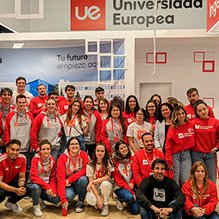
Come and see the campus
Get to know the facilities and discover why Universidad Europea is made for you.
Faculty
Our teaching staff
- Esteban Serrano Monge
PhD Universitat de Lleida (Spain), MBA Vanderbilt University, TN, USA; BS Finance George Mason University, VA, USA. Over twenty years of experience as associate professor of finance and accounting while at the same time holding chief executive position at my own company in the fast moving consumer goods (FMCG) industry in South America. - Maicol Ochoa Arellano
Mathematician with more than fifteen years of teaching experience, solid knowledge and skills in solving complex problems of various kinds, with special interest in topics such as Fundamental Mathematics, Probability Theory, Pure and Applied Statistics, as well as some applications to Data Analysis, Economics, Management and Quantitative Finance. - Hongsong Wang
Dr. Wang received his PhD in Economics from the Complutense University of Madrid. He also works as a research director for Spanish think tanks, providing policy advice to various governmental institutions both in Spain and for the European Union. He has published dozens of research papers in prestigious and indexed scientific journals and has participated in international academic and policy-making conferences. His research interests include mainly entrepreneurship, history of economic thought, economic history, public policy and environmental economics. - Janaina Cejudo Sanches
Professor of Business Mathematics in the Business Analytics Degree 100% in English and in the Online Business Management and Administration Degree.
Professor of Chemistry for Engineering at the School of Architecture, Engineering and Design of the UEM. Researcher of the NanoUEM group.
Degree in Biology and Graduate in Biotechnology. PhD in Molecular Biosciences.
6 years of research experience at the Institute of Catalysis and Petrochemistry of the Spanish National Research Council (ICP-CSIC), with participation in European and national projects and collaboration with companies (Rovi Farmacéutica, Decamed, Arquimea). Tutor of TFG, TFM and professional practices in the field of biocatalysis. - Violeta Doval Hernández
She has worked for the last 10 years as a consultant for different international organizations in Europe, Latin America, West Africa and Maghreb. In 2016 she worked at the European Commission in a Research Unit of the Directorate General for International Cooperation and Development (DEVCO). She holds a European PhD in Government and Administration from the Complutense University and has done research stays at the Saint Louis University in Brussels. - Leslie Paulina Rodríguez Valencia
PhD in Economics and Business Administration from the Universidad Autónoma de Madrid. Her research focuses on SME financing. She currently works as a forensic finance analyst at RHO Finanzas. - Mónica Sánchez de Francisco
Programming fundamentals I
PhD in Computer Science and Technology from Universidad Carlos III. The thesis is framed in the national research project PACE (TIN2016-77690-R) "Pervasive and Affordable technologies for Civic Engagement". In which a conceptual model is proposed for developers and designers to evaluate and design civic technologies based on gaming and gamification as motivational factors. With publications in both journals and high impact conferences within the scientific community in the area of HCI.
Excellence endorsed by the best
Frequently Asked Questions
Is business analytics a good career?
Yes, business analytics is a highly sought-after and rewarding career path. The demand for business analysts has increased significantly in recent years as organisations across various industries are looking for ways to leverage data to drive their decision-making and stay competitive in the market.
Business analysts use data to help companies identify problems, make informed decisions, and improve their operations. They work with stakeholders to gather and analyse data, create reports, and develop recommendations.
A career in business analytics can be highly rewarding because of the variety of opportunities that exist. Business analysts can work in different industries, including finance, healthcare, retail, and technology, among others. Additionally, there are opportunities to advance within the field and take on leadership roles, such as data science manager or chief data officer.
What does a degree in business analytics mean?
A degree in business analytics typically refers to a university programe that focuses on using data analysis, statistical modelling, and other quantitative techniques to help businesses make data-driven decisions.
At Universidad Europea, our degree in business analytics includes subjects such as:
- Accounting
- Finance
- Macroeconomics
- Microeconomics
- Statistics
- Databases
- Digital Ecosystems
A degree in business analytics provides graduates with the skills and knowledge necessary to work in a variety of roles. Our graduates go on to enjoy careers in different positions such as business intelligence, business strategy, strategic analysis, digital marketing, and operations.
What is a typical day in the life of a business analyst?
A typical day in the life of a business analyst can vary depending on the industry, organisation, and specific role. However, here is a general overview of what a business analyst may do during their day:
- Review project goals and objectives: A business analyst may review project goals and objectives to ensure they are on track and aligned with the organisation's overall strategy.
- Conduct research and analysis: Business analysts spend a significant amount of time gathering and analysing data to identify trends and patterns, as well as to understand the business problem or opportunity. This may involve conducting interviews, surveys, or focus groups, as well as reviewing existing data sources.
- Create reports and presentations: Once the data has been analysed, business analysts may create reports and presentations to share their findings with stakeholders.
- Collaborate with stakeholders: Having identified potential areas for improvement, business analysts may also work with senior management and other stakeholders in the decision-making process to implement any change.
How long does it take to become a business analyst?
If you decide to study the Degree in Business Analytics at Universidad Europea, it will take you four years to complete. During that time, as well as learning from a top-level faculty, you will have many opportunities to carry out internships and work placements at leading companies in different sectors, meaning you will be prepared to work as a business analyst as soon as you complete your studies.

